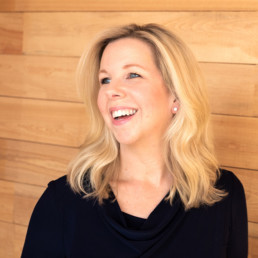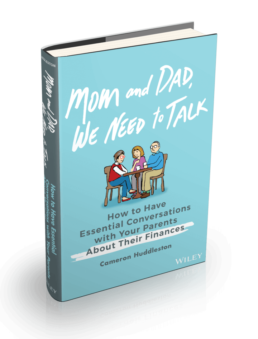I have been writing about personal finance for a long time – more than 17 years. As you can probably imagine, I’ve had the opportunity to interview countless financial experts, lots of ordinary folks who’ve shared their money journeys with me and even some big names in the world of business and finance – such as Tony Robbins and David Bach. I feel fortunate that I’ve had the opportunity to learn a lot about personal finance from these interviews.
You can imagine, though, that it might be tough to pinpoint the best money advice I’ve ever gotten in the nearly two decades I’ve spent as a financial journalist. But that’s what my friend Shannon McLay asked me to do when she recently was interviewing me for her podcast, Martinis and Your Money. I quickly racked my brain to come up with something truly consequential – not just a clever hack. I didn’t have to think long to come up with some great advice I got a few years ago that has dramatically changed the way I think about money and has had the biggest impact on my finances.
The Advice: You Don’t Need a Budget …
You’ve probably heard this advice again and again: If you want to take control of our finances, you need a budget. The problem is, most people hate budgeting. In fact, a survey by GOBankingRates found that sticking to a budget is the biggest money challenge Americans said they face. That’s because budgeting can feel like dieting – and we all know how diets usually turn out. People tend to lose weight then go back to their old ways, gain back the pounds they lost and then some.
Like a diet, a budget feels restrictive. You have to track your spending and figure out what to cut. If your mind works anything like mine does, you feel hungry as soon as you tell yourself you’re on a diet, and you want to go on a spending spree as soon as you tell yourself you need to cut back. So how are you supposed to take control of your finances if the key to doing so – budgeting – is so darn hard?
The advice I got was to use a different approach. Stop trying to restrict yourself into financial success with a budget. Instead, develop a spending plan to figure out where you want your money to go.
You Need a Spending Plan
Like the name suggests, a spending plan revolves around how you want to spend your money. It’s about choice rather than that sense of deprivation you get when you try to budget, However, it doesn’t mean spending your money on anything and everything you want. After all, this advice is geared toward taking control of your finances, not wrecking them.
The key to creating a spending plan is to first figure out what you value most in life. Maybe it’s freedom to do what you want. It could be more time to spend with your family. Or it might be a successful career with a big paycheck.
Once you’ve identified what your values are, look at what you’re spending money on to see if it aligns with those values. Do this by checking your bank and credit card statements and making a list of your expenditures. Then rank your expenditures (essentials, bills, savings and non-essentials) based on how much you’re spending on each. This will show how you’ve prioritized your spending and whether it actually aligns with what you value.
For example, if you value having the freedom to do what you want, your goal might be to have enough money saved to retire at the age of 50 (or 40 or even 30). But if you’re saving only 5% of your income each month but spending 15% on non-essentials such as restaurant meals and nights out, your spending isn’t aligning with your priorities.
The benefit of identifying what you value is that it can serve as motivation to spend in a way that benefits you over the long run – not just in the moment. Every time you make a purchase, you can ask yourself whether you’re getting the best value for your money. Then ask if your money is going toward something that gets you closer to or further away from your goals.
So a date night with your significant other could be a good use of your money if you value spending quality time with loved ones. But going out to lunch every day with colleagues might not be the best use of your money if your goal is to save more to retire early.
In short, you flip the script with a spending plan. You don’t focus on what you should cut as you would with a budget. You think about where you want your money to go that will benefit you most and align with what you want in life. This will help reduce your nonessential spending so you can have more to put toward the things that matter most. The best part: You don’t feel like you’re restricting yourself because you know you’ll be rewarded by aligning your spending with your priorities.
Don't Miss Out! ORDER NOW!
"An excellent step-by-step guide to navigate what can be time-consuming, uncomfortable conversations."
- Michelle Singletary, The Washington Post
Related Posts
April 28, 2019
My Biggest Money Regret: Not Talking to My Mom Soon Enough About Her Finances
I learned the hard way that family…
April 23, 2019
5 Smart Money Moves Stay-at-Home Parents Should Make
Parents who leave the workforce to…

Cameron Huddleston
I am the author of Mom and Dad, We Need to Talk: How to Have Essential Conversations With Your Parents About Their Finances. I also am an award-winning journalist with 20 years of experience writing about personal finance. My work has appeared in Kiplinger’s Personal Finance, Forbes.com, Yahoo!, MSN, and other online and print publications.




